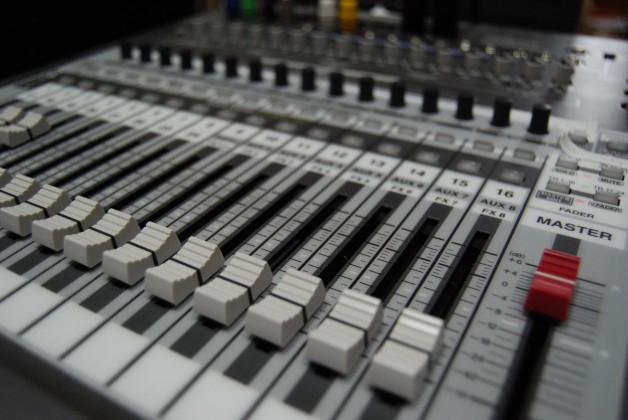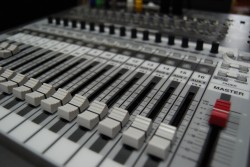“The most maddening paradox of recording is that what you hear in the playback does not resemble what you’re sure you played. You hear two tracks at once: what you desire and what you have produced. Notes dangle before you without their motivations, minues the physical struggle of playing them; my muscles twitch strangely while I listen. The microphone alters my interpretation, inevitably. In subsequent takes, I’m effectively talking back and forth to myself via an electronic ear, trying to find truth by trial and error. There are many places where I am not achieving what I want, others where I realize I don’t know precisely what I want . . .
“It’s supposed to be improvised and unpredictable, and we do it perhaps ten or fifteen times. How do you wring spontaneity from its opposite?” Jeremy Denk in The New Yorker 2/6/12
There is a wonderful article in the current issue of The New Yorker written by a pianist about recording a sonata. His precise descriptions of the ecstasy and the painstaking trouble of “getting it right” parallel the writing process perfectly. And yet I’ve never seen a writer able to parse that process so well as Denk does here.
There is some great writing about writing, though. My favorites? The Secret Miracle, edited by Daniel Alarcon, and The Writing Life by Annie Dillard. Alexander Chee blogs gorgeously about writing, too.
Denk captures the sheer effort required to produce something that seems to unite into a single performance–the fiction of fiction (or of any narrative). The writer editing sentences, fiddling with words and images, faces the same choices Denk must make between the too perfect and the imperfect. Beginning writers find it hard to believe that what is required is a note-by-note analysis.
Denk’s disctinctions between a live performance and the “document” of a recording are helpful to the writer as well. What passion and time mitigate in a human performance–in reading your work aloud, for example, or just in the first surprise of the words on the page–need to be finessed in a recorded product.
Editing is an art that writers must embrace. This is the only place, really, where we have a shot at virtuosity.
Denk writes: “Ultimately, editing turns out to be even more nerve-racking than recording. In the moment of playing, the logistics of just hitting the notes distract you from the continuous choices you are making. In the edit you have nothing but choice. And yet you feel helpless, since everything has already been played.” Denk, The New Yorker 2/6/12.
Of course, the writer is less beholden to technology. One can always go back and begin again, “record” a few fresh notes. But this flexibility has its own dangers. When to stop laying down tracks and start fixing and afixing them?
In any case, I am elated reading this piece. It’s beautiful, funny and so apt. Check it out, writers, and then do what pianists do, what virtuoso pianists do, and go practice.



thank you. just brilliant. i needed to read this today. one of those despairing days, you know? i didn’t know musicians suffered the same challenges as we writers do. I’m trying to write a symphony/novel. If had to do a little improve jazz piece, oh, I’d swing. But a symphony…what the heck was I thinking. Some days it’s five finger exercises, some days, tinkling notes that could become a sonata. (I don’t really know at this moment what a “sonata” is. Like the sound. See my problem. Language beauty addict. Form, structure, it’s driving me nuts. best to everyone. above all, always keep writing. it’s a joy in-and-of-itself. The way a musician must feel picking up his instrument to play for himself. A joy, a relief; complete satisfaction.